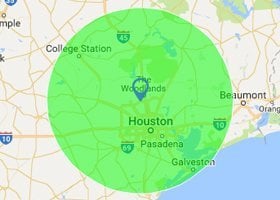Is My Septic Tank Environmentally Friendly?
In today's world, there is more awareness of environmental concerns than ever before, and increasing numbers of people are finding that their decisions, across a wide range of different dimensions, are being influenced by environmental concerns.
In order to be more environmentally friendly, many people are turning towards systems and solutions to help them to operate more independently and “off-grid,” and without excessive reliance on certain features of public infrastructure that may be environmentally dubious.
But for the sake of living a more autonomous and "homesteader" lifestyle, and also just as a pragmatic consideration when you live in an out-of-the-way area or rural locale – septic tanks very often enter into the discussion.
Septic tanks have had a lot of mixed press over time, with many wondering about their environmental credentials.
Here are some things to consider when you're trying to assess whether your septic tank is environmentally friendly.

The traditional sewage system is more wasteful than you might think
Most of us don't give much thought to what actually happens to sewage waste further down the line, once it has been treated. And few people are really aware of some of the logistics that go into maintaining the sewage infrastructure.
Here are some reasons why the traditional sewage system is more wasteful than you might think.
It wastes a vast amount of water
The traditional sewage system requires a vast amount of water to be used to move sewage along and to process it in treatment plants.
But unlike with a lot of other forms of water, water that has been used in sewage treatment is not purified and put back into circulation. Instead, it is pumped straight out to sea.
Many major environmental issues are linked to issues around water scarcity, and the  mismanagement of water.
mismanagement of water.
It’s based on waste reduction not waste elimination
The sewage system is essentially a mechanism where the emphasis is on waste reduction rather than waste elimination – and whatever gets flushed down the drain is likely to remain waste in one form or another, and will tend not to be cycled back into the natural world in a way that promotes sustainability.
Septic tanks are a lot more environmentally friendly than you might think
Many people dislike the idea of septic tanks because they find the thought of having waste kept "on premises" disgusting. In fact, though, septic tanks are remarkably environmentally friendly when they are well-managed.
Here are some reasons why.
Good septic tanks eliminate waste, recycle water, and naturally replenish water tables
A properly constructed septic tank will involve a process where waste water from your home is stored, treated with bacteria, and funnelled into the soil in a way that helps to encourage the complete breakdown of waste products, and the eventual natural filtration and  restoration of the water to the groundwater supply.
restoration of the water to the groundwater supply.
In this way, properly constructed and maintained septic tanks are far more environmentally friendly than the sewage system.
Septic tanks don’t require the waste of vast amounts of water
Not only do septic tanks help to restore groundwater, but they also do not require massive amounts of additional water to ensure their operation – unlike with the sewage system.
Poorly constructed or maintained septic tanks could be a problem – and that's where a lot of the bad press comes from
In order to be environmentally friendly, septic tanks have to be well constructed, and probably maintained. If not, they can pollute ground soil and groundwater, as opposed to helping to restore them.
In fact, shoddily built and leaking septic tanks are where a lot of the initial bad press came from. Today, though, modern and  well-constructed septic tanks are a world apart.
well-constructed septic tanks are a world apart.




